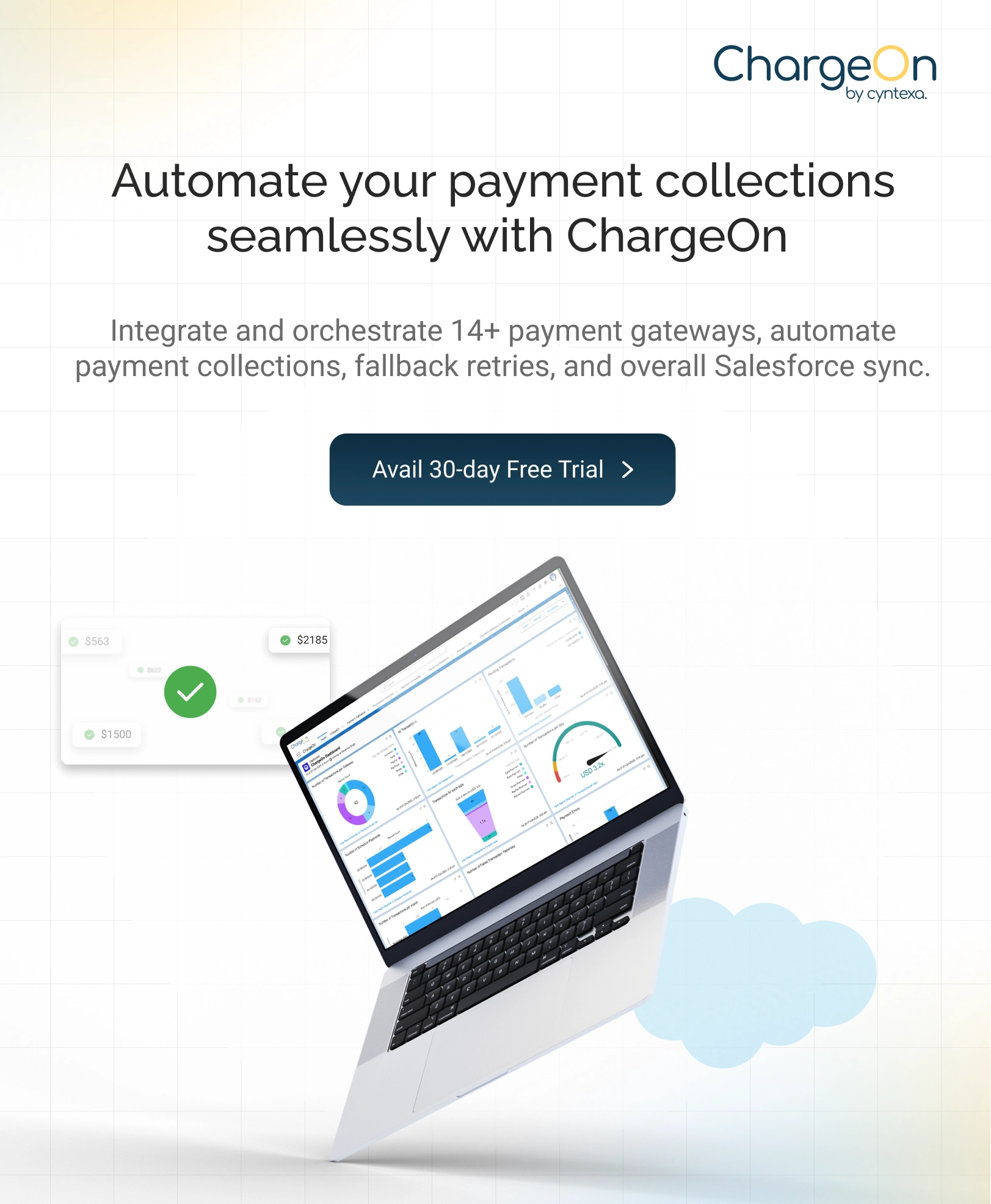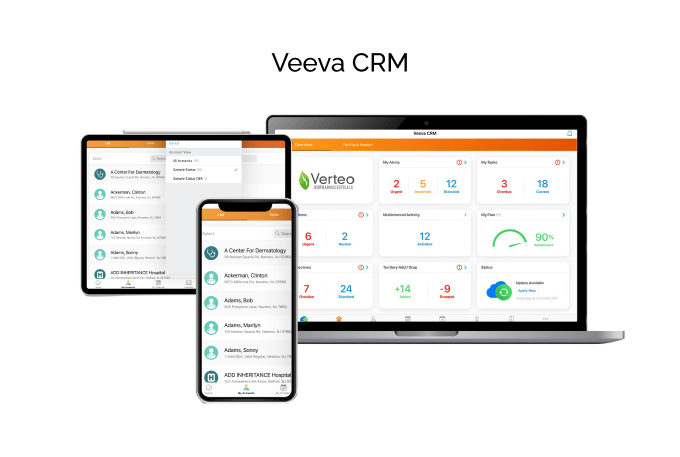Veeva CRM Moved Beyond Salesforce: A Look Back and Current Landscape
Table of Contents
After a long-standing partnership that began in 2007, Veeva announced its departure from Salesforce, fulfilling it in September 2025.
Veeva was previously built on the Salesforce platform but now has shifted its operation to its own technology stack, the Vault platform. This move aligns Veeva to gain greater control, reduce reliance on third-party infrastructure, and enable innovation, focusing on catering to the unique needs of pharmaceutical and biotech companies.
However, this transition raises questions for customers on both sides: what happens now that Veeva operates independently, and how does Salesforce continue to serve the life sciences market?
This blog will help you understand everything from the Veeva and Salesforce partnership to the current scenario of both technologies in the life sciences industry.
Let’s get started!
What is Veeva?
Veeva is a cloud computing company that offers software and data solutions, collectively known as the Veeva Systems suite, to life sciences businesses across the globe.
Its product categories include cloud-based apps, data solutions, and consulting services that help pharma and biotech companies streamline operations, improve compliance, and accelerate product development.
We will delve into its product category range further in this blog.
Veeva and Salesforce Partnership
Veeva and Salesforce’s partnership introduced a comprehensive and tailored CRM solution for life science organizations called Veeva CRM. This partnership offered the following benefits to customers:


1. Reduced IT Complexities
Veeva leveraged Salesforce’s cloud infrastructure to develop and launch scalable products that responded to the growing needs of the pharma companies.
2. Improved Security Standards
Salesforce’s robust security standards helped Veeva to protect its customers’ data and privacy across its suite of applications. From advanced encryption and user authentication protocols to compliance with regulatory standards, Salesforce helped Veeva meet the security needs of its customers.
3. Scalability and Reliability
Salesforce’s scalable architecture enabled Veeva to scale its CRM Solutions as per the growing life sciences industry demands. The Veeva product suite maintained optimal performance, supporting the larger user population.
4. Robust Functionality
Veeva was leveraging the standard functionalities, including reporting, configuration, and maintenance. Furthermore, Veeva was also using the Salesforce data model and application logic.
Veeva CRM could easily be integrated with Salesforce Marketing Cloud and Service Cloud to offer better functionality.
5. Salesforce’s Preferred Worldwide Partner
Veeva CRM was Salesforce’s preferred solution for the life science industry for the past decade, building versatile and innovative industry-specific solutions.
Veeva CRM’s Move from Salesforce: Key Reasons
Veeva Systems sought to achieve technological independence, control over its platform, data, and cost savings.
- Reducing Veeva CRM’s dependence on a single vendor. In its quarterly filings, the company stated that it has experienced downtime in the past due to outages in Salesforce and AWS.
- Veeva was paying Salesforce a per-seat license fee, which took a certain percentage of its revenue share. By shifting to its technology infrastructure, Veeva aims to save this cost.
- Veeva Systems also wants to gain control over its technology stack and data.
- The company wanted to expand its offering beyond CRM, wanting to develop more products and services for the life sciences industry. The company also said that this move will help them to improve the user experience.
Veeva and Salesforce: Current Landscape Explained


Veeva
Amidst the shift, Veeva Systems’ suite operates on the homegrown Vault platform. It is a cloud enterprise content management platform with a suite of applications purpose-built for the life-science industry.
Having a multi-tenant cloud infrastructure enables multiple customers to share the same computing resources while maintaining their data and configurations specific to their needs. Built using Java and open-source technologies along with web services from Amazon, this platform is hosted at SOC 1 Type II and ISO 2700-certified global data centers. It supports REST-based APIs, facilitating the integration with third-party platforms.
The Vault platform application suite offers different clouds: Development Cloud, Commercial Cloud, Data Cloud, Quality Cloud, and Medical Suite. Following is the breakdown for its product offerings:
1. Development Cloud
Comprises:
- Clinical solutions over the Veeva Clinical Platform
- This supports clinical trial execution with connected applications.
- It helps businesses by streamlining trial processes (e.g., EDC, CTMS), reducing study timelines, and enhancing data quality for faster drug development.
- Regulatory solutions as Veeva RIM (Regulatory Information Management)
- An application that manages product and registration information and accelerates document submissions.
- This application helps businesses by accelerating approval timelines, reducing submission risks, and harmonizing global regulatory workflows.
- Safety solutions in Veeva Safety Suite
- Transform safety management with automation and AI
- Helps businesses by: Enhancing pharmacovigilance efficiency, automating adverse event reporting, and ensuring patient safety compliance.
2. Commercial Cloud
Comprises software, data, and services solutions such as field planning, event and data management, and more.
- Using these solutions, you can connect with healthcare professionals (HCPs) in a modern, compliant way.
- It helps businesses by enabling targeted engagement with healthcare providers, accelerating product launches, and ensuring compliance in commercial activities.
3. Veeva Data Cloud
- Think of it as a unified place for storing and managing all your data. It manages businesses’ reference, transaction, deep, and pulse data across different business domains.
4. Medical Suite
- Drive meaningful scientific exchange with HCPs.
- It helps businesses by facilitating compliant medical communications, improving therapy adoption, and supporting evidence-based decision-making.
5. Quality Cloud
- It offers solutions related to content, process, training, and lab, aiming to unify quality processes to deliver safe products.
- This helps businesses by ensuring product safety, simplifying audits/inspections, and maintaining GxP compliance across manufacturing and distribution.
6. Veeva Vault AI
It brings versatile AI capabilities into the Vault platform and its applications through AI agents and AI shortcuts.
- AI agents help automate tasks and provide insights across applications and documents through natural language prompts.
- AI shortcuts allow you to create automations for repetitive tasks that save time, streamline workflows, and enhance productivity.
Salesforce
Salesforce introduced its product for the life sciences industry, known as Life Sciences Cloud, on 18 June 2024. It leverages the capabilities of Health Cloud, Marketing Cloud, Service Cloud, and Data Cloud to power life sciences solutions.
The aim behind this product is to serve the needs of medtech and pharma businesses, streamlining the drug and device deployment and clinical trial journey, and leveraging AI to deliver personalized experiences.
Read More: Guide to All Salesforce Products in 2025


Comparing Veeva and Salesforce Capabilities: What’s Common and What Sets them apart?
Veeva and Salesforce Life Sciences Cloud: Overlapping capabilities
- Life sciences-focused: Both platforms are tailored for pharmaceutical, biotech, and medtech companies. They focus on addressing the unique regulatory, compliance, and commercial needs of businesses.
- Multichannel engagement: Both platforms improve engagement with healthcare professionals, patients, and other stakeholders through digital, in-person, and remote channels.
- Compliance: Both emphasize maintaining regulatory compliance and data security, which is critical for life sciences businesses.
- Integration: Both support integration with other enterprise systems such as ERP, data warehouses, and clinical platforms. However, the extension and the ease of integration might differ.
Veeva vs. Salesforce: When and Why to Choose?
| Aspect | Veeva Systems | Salesforce Life Sciences Cloud |
|---|---|---|
| Platform Ecosystem | Unified within the Vault platform. | Part of Salesforce’s broader and more versatile ecosystem. |
| Industry-specific focus | Focused only on life sciences workflows. | It is adaptable to multiple industries. |
| AI and Automation | Offers limited AI capabilities, including assistive agents. It leverages external partnerships for AI. | Native Einstein AI-driven insights, predictive analytics, and automation through autonomous Agentforce agents with options for custom AI integrations. |
| Customization and Flexibility | Preconfigured, standardized model. | Highly flexible, as you can customize objects, workflows, AI, and modules beyond a life sciences focus. |
| User Experience and field use | Mobile-ready with offline capabilities. | You get a similar Salesforce UI, and offline functionality is improving. |
Choose Veeva if your business:
1. Demands Deep Life Sciences Expertise
Veeva Systems is focused on catering only to the life sciences business needs. Therefore, it offers niche solutions for this industry without focusing on cross-industry needs.
2. Prioritizes Compliance
It offers out-of-the-box compliances such as FDA, EMA, clinical trials, and more, built-in since day one, eliminating your need to seek third-party help. You get everything from audit trails to quality management, so you are up and running.
3. Prioritizes Regulatory Safety
This platform tracks every regulatory task, such as drug development or device lifecycle, with built-in checks, alerts, and traceability. You can track every sample, batch, and every signature is recorded accurately.
This solution is ideal for companies that deal with high-compliance products, such as vaccines or medical devices. It offers your team the exact tools they need so you can focus on innovation and patient safety.
Choose Salesforce Life Sciences Cloud if your business:
1. Wants to Drive AI Excellence
- Automatically draft compliant medical emails personalized for each healthcare professional.
- AI can spin through patient records and match ideal candidates for clinical trials.
- Leverage autonomous AI agents to bring together EHR data, sales figures, and lab results.
- Spot trends, predict risks, and make intelligent, data-driven decisions.
2. Operates Beyond Life Sciences
As Life Sciences Cloud is built on the same Salesforce platform as other products, it means you get the auto-scaling capabilities and cross-business domain assistance. It allows you to leverage the best from every product without changing your workflows.
You can leverage familiar tools and security models, add new modules in clicks, and maintain a single source of truth for customer data, claims, and outcomes. It’s one ecosystem, so marketing, finance, and field teams all stay in sync.
3. Values Speed for Commercial Teams
Life Sciences Cloud gives you up-to-the-minute visibility into pricing, contract terms, and rebate programs right in your team’s mobile apps. This means faster approvals, fewer pricing errors, and better customer conversations on the spot.
This solution is ideal for scaling commercial operations and AI-driven recruitment. If you want a consolidated platform that accelerates sales, marketing, and clinical outreach, along with AI insights and autonomous agents, this solution is your ideal choice.


Veeva-Salesforce Split: The Impact
In a Quarterly report by Veeva it has highlighted the impact that existing Veeva-Salesforce customers might have over their operations.
Key Problems for Customers After the Split:


1. Migration Complexities
Customers have to transition from Salesforce-based Veeva CRM to Veeva Vault. This involves:
- Data migration of sensitive life sciences records such as clinical trials, data compliance standards, and more.
- There could be a potential data loss or compliance gap during transfer.
- Rebuilding custom integrations with other systems, such as ERP or clinical databases.
- Salesforce APIs will break, requiring rebuilding over Veeva’s Vault platform.
2. Operational Disruptions
- Sales team productivity loss during retraining on new platforms.
- Possible downtime during system transitions.
- Need to revise workflows aligned with new CRM capabilities.
- Development resources that are focused on migration might cause a delay in new feature adoption.
3. Strategic Uncertainty
- Forced reevaluation of long-term CRM strategy:
- Stay with Veeva Vault?
- Switch to Salesforce Life Sciences Cloud?
- Adopt a third-party solution?
- Vendor lock-in risks with either platform.
4. Cost Implications
- Unbudgeted expenses for:
- Data migration services
- System reconfiguration
- Retraining programs
- Potential price increases from both vendors post-split.


Recommended Mitigations that You Should Follow:
A five-year wind-down period until September 2030 is given to existing customers to migrate to Veeva Vault, Salesforce Life Sciences Cloud, or an alternative solution. During this period, you can practice:
1. Conducting a Data/Compliance Audit
- Go by evaluating your current CRM setup, data flows, objects, workflows, and compliance requirements.
- Identify sensitive, regulated, or business-critical data that will require special handling during migration.
- Map out data flows and document where compliance risks may arise.
2. Negotiate Contract Terms with Both Vendors
- Engage with both Veeva and Salesforce to seek support, migration assistance, and pricing during the transition and wind-down period.
3. Parallelly Test Environments
- Set up a Sandbox in Salesforce or a test environment in Veeva Vault.
- Run test operations, migrate a subset of data and workflows for testing accuracy, performance, and compliance.
- Use these environments to validate integrations and train users before going live.


To Sum Up
With Veeva building its platform and Salesforce introducing its Life Sciences Cloud, businesses now have two different options to choose from. Both are focused on helping life sciences companies grow, but they offer different paths and priorities. As things move forward, it’s less about which platform is better and more about which one fits your business needs, goals, and plans the best.
Need assistance over the same? Seek Cyntexa’s Salesforce Consulting services to help yourself with the best!
Summary
- Salesforce and QuickBooks serve different business purposes and have distinct data structures, creating challenges for data exchange between sales and accounting teams.
- Salesforce QuickBooks integration enables automated data exchange, reducing manual data entry and improving accuracy and efficiency.
- There are four primary methods for Salesforce QuickBooks integration: third-party tools, custom integration, middleware platforms, and manual import/export.
- Benefits of integration include improved accuracy, efficiency, collaboration, customization, scalability, and a unified source of truth for business data.
- Choosing the right integration method depends on business needs, costs, complexity, and the size of the organization.
Don’t Worry, We Got You Covered!
Get The Expert curated eGuide straight to your inbox and get going with the Salesforce Excellence.
AUTHOR
Vishwajeet Srivastava
Salesforce Data Cloud, AI Products, ServiceNow, Product Engineering
Co-founder and CTO at Cyntexa also known as “VJ”. With 10+ years of experience and 22+ Salesforce certifications, he’s a seasoned expert in Salesforce Data Cloud & AI Products, Product Engineering, AWS, Google Cloud Platform, ServiceNow, and Managed Services. Known for blending strategic thinking with hands-on expertise, VJ is passionate about building scalable solutions that drive innovation, operational efficiency, and enterprise-wide transformation.


Cyntexa.
Join Our Newsletter. Get Your Daily Dose Of Search Know-How






